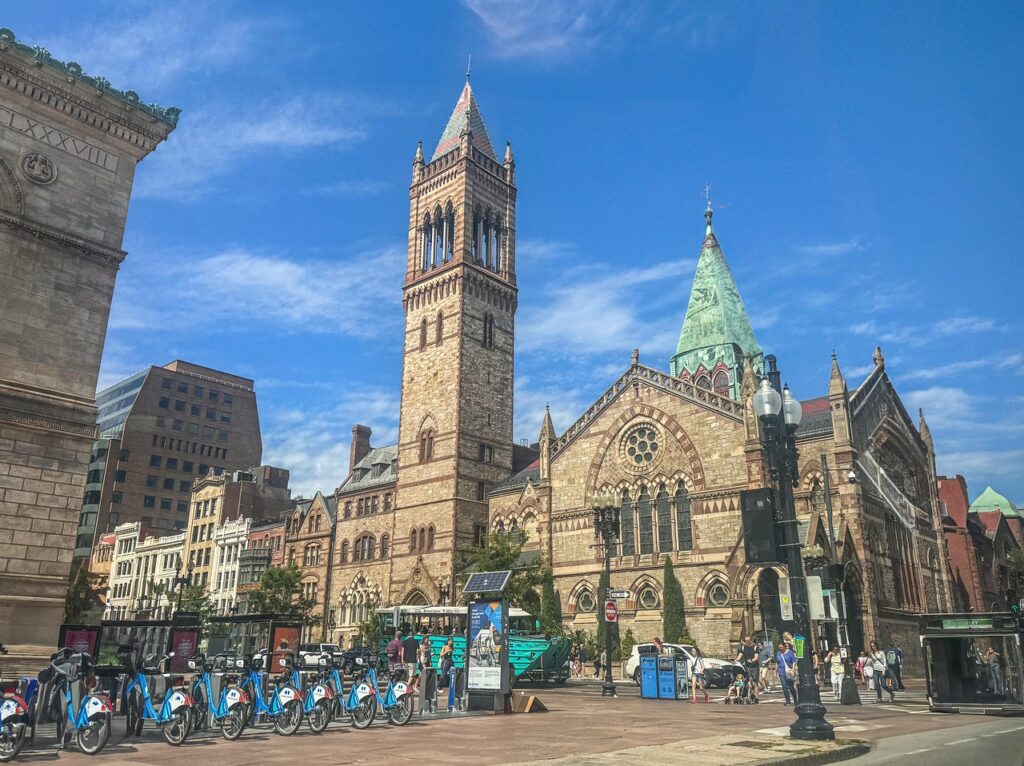Boston University Acceptance Rate: A Comprehensive Guide for Prospective Students

Do you dream of attending one of Boston’s prestigious universities? Boston University (BU) is known for its challenging academic approach, vibrant campus life, and strong alumni network. Boston University Acceptance Rate
One of the most frequently asked questions by prospective students is: What is Boston University’s acceptance rate? Information about BU’s acceptance rate, admissions requirements, and tips for applicants will help you prepare your application and increase your chances of being admitted.
In this comprehensive guide, we discuss Boston University’s acceptance rate, admissions statistics, factors that affect admissions, and strategies for optimizing your application. Whether you’re a high school senior, a transfer student, or an international student, this guide will provide valuable insight into the admissions process.
Boston University Overview
Founded in 1839, Boston University is a private research institution located in the heart of Boston, Massachusetts.
The university has over 34,000 students from all 50 states and over 140 countries. Boston University offers over 300 undergraduate and graduate programs in a variety of disciplines, including liberal arts and sciences, business, engineering, health sciences, and communications.
Boston University Key Facts:
Location: Boston, Massachusetts
Undergraduate students: Approximately 16,000
Masters students: Over 18,000
Academic programs: Over 300 undergraduate and graduate programs
Campus size: 370-acre urban campus
Notable alumni: Michael Crichton, Julianne Moore, Howard Zinn, and many more
Boston University Acceptance Rate: What do the numbers say?
Current Acceptance Rate (2023 data)
Boston University has an acceptance rate of around 20–22%, making it a selective university. This percentage means that out of 100 applicants, around 20–22 students are admitted.
Historical Trends
Over the past decade, Boston University’s (BU) acceptance rate has fluctuated somewhat, reflecting its growing popularity and highly competitive admissions. For example:
2010: Acceptance rate was around 37%.
2015: Acceptance rate dropped to around 30%.
2020–2023: Acceptance rate stabilized at around 20–22%.
This trend reflects increasing selectivity, consistent with Boston University’s growing reputation and competitive academic environment. Boston University Acceptance Rate
How does BU compare to other top universities?
Compared to other elite universities:
Harvard University: Acceptance rate around 4.5%
Boston University: Acceptance rate around 20%
Boston College: Acceptance rate around 26%
Northeastern University: Acceptance rate around 20%
While BU is highly selective, it is still more accessible than Ivy League universities and offers a balance of selectivity and opportunity.
Factors that influence Boston University’s admissions decisions
Understanding what Boston University is looking for can help you optimize your application. The university evaluates candidates holistically, taking into account several factors:
Academic performance
Grade point average (GPA): Competitive applicants typically have a GPA of 3.7 or higher on a 4.0 scale.
Academic aptitude: Honors, AP, IB, or Associate Degree courses demonstrate academic aptitude.
Standardized Test Scores (Optional, but Recommended)
SAT: Average scores range from 1340 to 1510.
ACT: Average scores range from 30 to 34.
Note: Boston University offers a test option for current applicants. High scores may enhance your application but are not required.
Extracurricular Activities
Leadership skills, involvement, and achievements in clubs, sports, the arts, or community service are essential.
Cover Letter and Essays
A compelling cover letter sets you apart from other applicants. It showcases your personality, your aspirations, and explains why BU is the best choice for you.
Letters of Recommendation
Strong recommendations from professors or guidance counselors who attest to your academic ability and character strengthen your application.
Special Talents or Backgrounds
Unique talents, professional experience, or diverse backgrounds add depth to your application and increase your chances of being considered.
Admissions Statistics and Course Profile
Backstage 2026 (Enrollment Fall 2022)
Applications: Over 39,000
Admitted: Approximately 8,600 students
Acceptance Rate: Approximately 22%
Average GPA: 3.7–3.9
Average SAT Score: 1390–1510
Average ACT Score: 30–34
Demographics
BU prides itself on its diverse student body:
Underrepresented Minorities: 20%
International Students: 17%
First-Generation Students: 15%
This diversity enriches campus life and fosters a global perspective.
Tips to Improve Your Chances of Admission to Boston University
BU can be competitive, but strategic preparation can improve your chances of admission:
- Build a strong academic record
Aim for a high GPA and challenging courses. Prioritize Honors, AP, or IB courses to demonstrate your academic excellence. - Prepare for standardized tests (if you submit them).
Although optional, submitting competitive SAT or ACT scores can strengthen your application, especially if your GPA is low.
- Participate in meaningful extracurricular activities.
Quality over quantity. Demonstrate leadership, initiative, and a sustained commitment to activities that align with your interests.
- Write a compelling cover letter.
Tell your story, your goals, and your reasons for choosing BU. Authenticity and clarity can win over the admissions committee.
- Provide compelling recommendations.
Choose professors or mentors who know you well and can highlight your strengths, character, and potential.
- Highlight special talents or experiences.
A special talent or background can make your application stand out.
- Apply early (if possible).
Early decision or early action can increase your chances of success based on your demonstrated interest.
Boston University Transfer and International Admissions
Transfers
Boston University’s acceptance rate for transfers is generally lower, around 10–15%. Transfer students must demonstrate strong academic performance and a clear reason for their transfer.
International Students
International students are subject to similar criteria but must also demonstrate English proficiency (TOEFL, IELTS). Boston University values international perspectives, so highlighting international experiences can strengthen your application.
Financial Aid and Scholarships
Although admissions are competitive, Boston University offers many merit-based scholarships and financial aid opportunities. Demonstrating financial need or exceptional talent can open up additional admissions opportunities. Boston University Acceptance Rate
Conclusion

Boston University’s acceptance rate of approximately 20-22% reflects its status as a selective institution that values academic excellence, leadership, diversity, and passion. If you meet or exceed the academic criteria and demonstrate a genuine interest in Boston University’s programs, you have a good chance of being admitted.
Remember: A comprehensive application that highlights your strengths, uniqueness, and connection to the BU community is essential. Prepare carefully, be authentic, and apply strategically to maximize your chances of joining this vibrant academic community.
Interested in applying to Boston University? Download the official admissions guide, connect with current students, or schedule a campus visit to experience BU’s vibrant community for yourself.
Admissions fees vary annually depending on the number of applications and the school’s priorities. You can always find the most up-to-date information on Boston University’s official admissions website.